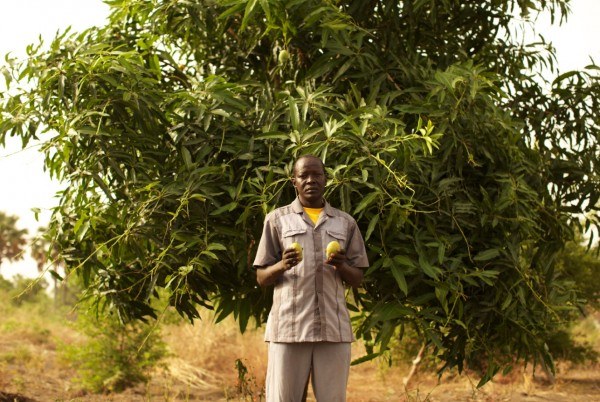The Vacant Village
I left on this trip looking forward to being with Joseph and the people of Timic, celebrating their amazing efforts. But what we find instead is equal parts horrifying and inspiring. I know from speaking with our team on the ground and reading the security reports that the villagers have been fleeing because of violent attacks.
Timic is caught in civil war and Joseph is in the cross hairs.
For months now Joseph has been a wanted man. He is an integral leader of his community, which makes him a target for retribution – this despite the fact that he seeks only peace, abundance and growth…for everyone in South Sudan.

He’s paid for it dearly – one of his children was killed and he has disappeared into a nearby town with his remaining family, evading those who are targeting him. It is under these nerve-racking conditions that I meet Joseph.
Our people on the ground have kept in touch with Joseph because of the role he’s played in our seed selling program, but more importantly, because he is a member of our South Sudanese family.
Joseph asks to accompany us to Timic. He warns us that we’ll have to go early in the day when it’s safe for him to be in the area, before anyone seeking retaliation will come looking for him. The desolate drive is an indication of what awaits us in Timic. This once-vibrant community has abandoned their homes, seeking refuge and protection in the larger town centres.
I look around in despair, mourning the loss of this vibrant village. Was it worth drilling a water well here? But then I see it: Joseph’s mango tree – the tree that started it all. It is looking stronger than ever. Joseph makes a beeline for the tree and waters it, then starts harvesting the mangos. He tells me that he does this several times a week – sneaking into the village for no more than 30 minutes at a time, nurturing the village gardens and his beloved mango tree, ensuring that they continue to prosper.
Although Joseph is carrying a heavier burden than ever, he is resolute in moving forward rather than getting caught up in the cycle of violence that surrounds him. He’s suffered major personal hardship, yet he continues to put others before himself. He knows that these turbulent times won’t last forever, and he wants his village to be primed for the return of its people.
I realize that his mango tree is so much more than it appears – it’s symbolic of the perseverance, tenacity and strength of Joseph and his community. It represents the circle of life. That tree was planted to care for future generations, just as the water well we drilled will serve the community long after the fighting stops. Without water, there is no mango tree. Water gives people something to hang on to, something to return to, and something to hope for.
Timic is a ghost town.